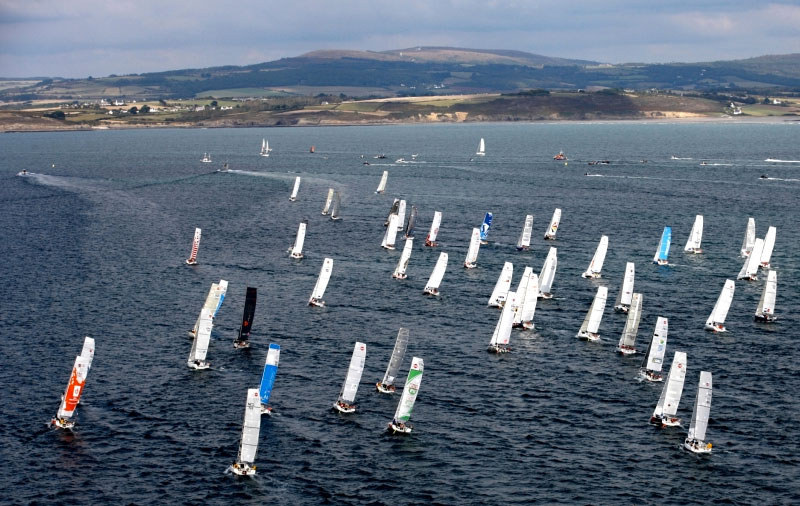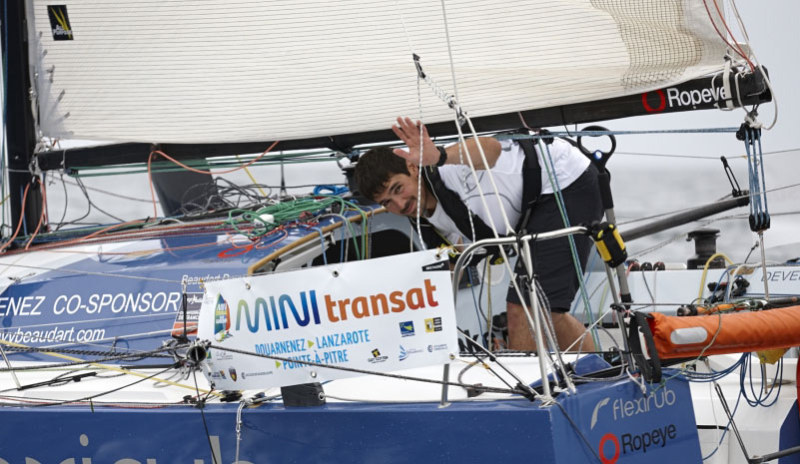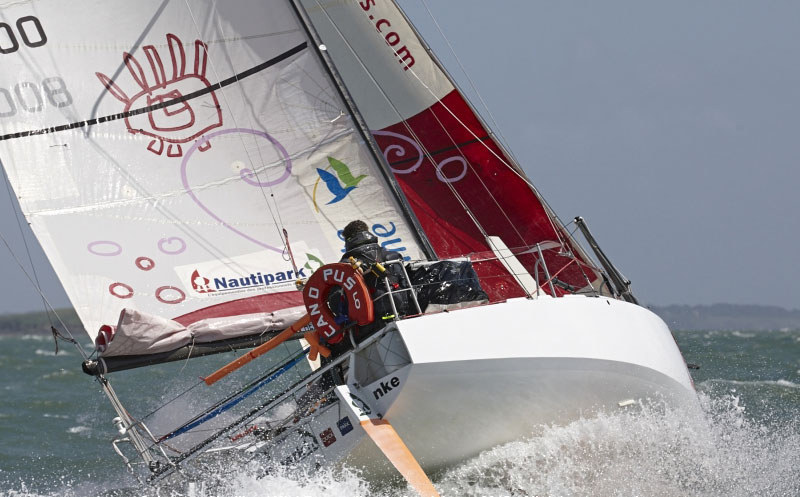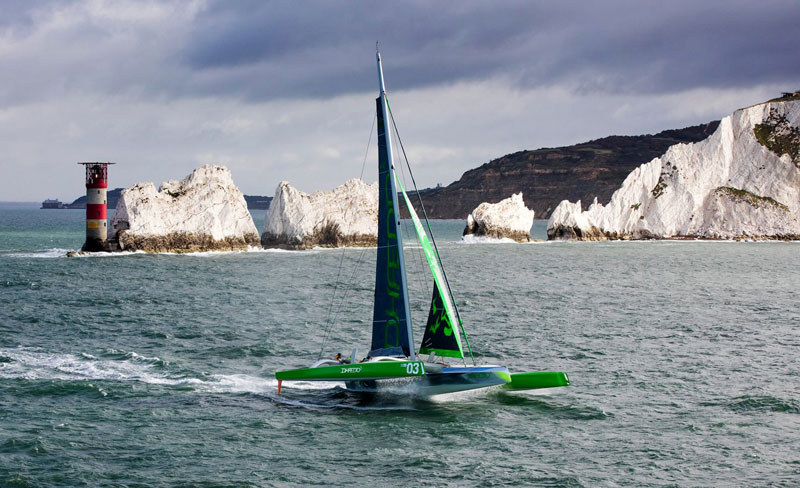
Mini Transat Update & More

A healthy fleet of 72 Minis departed the Breton port of Douarnenez, France, on Saturday in ideal conditions to begin the 20th edition of the iconic Mini Transat race. For the six dozen skippers present at the start, the 2015 Mini Transat îles de Guadeloupe is the pinnacle of years of hard work and preparation, and, for many, redemption after having their dreams crushed two years ago. Many Latitude readers may remember the now-notorious 2013 edition of the race in which several boats were lost as a result of severe autumn gales pounding the Bay of Biscay, eventually forcing the race to be delayed and eventually started farther south in Spain.
Sailing a new Etienne Bertrand-designed Ofcet 6.50, Frenchman Ian Lipinski is leading a healthy 46-boat Production (Series) fleet of boats by an estimated 15 minutes after four days of racing, as of this writing. Reserved for fiberglass, fixed-keel and aluminum-rigged boats with at least 10 hulls built, the Series class almost always provides close racing. Surfing down the Portuguese trades at an average speed of 12 knots, Lipinski is surely not taking the fast downwind sailing for granted. He was, after all, one of the many sailors who lost his boat during the last Mini Transat, abandoning it off the coast of Portugal while ‘delivering’ it from Douarnenez to Sada, Spain, for the delayed start of the 2013 edition.

In the 26-boat prototype fleet, which allows custom-designed boats with water ballast, canting keels and the use of carbon fiber, among other things, Frenchman Davy Beaudart on Flexirub is steadily pulling away from his pursuers. Now some 32 miles ahead of second-placed Frédéric Denis, Beaudart and his unique scow-bow Mini have been waiting for this moment since the boat was launched in the spring of 2014. The second of the David Raison-designed scow-bow Minis to be launched, Flexirub is an evolution of 747, which finished first in the 2011 race and second in 2013 after breaking a bowsprit while leading. For Denis, this race is also his own personal redemption song, having spent five months repairing the keel and structure of his boat after it was also abandoned off the coast of Portugal by its previous owner during the ill-fated ‘delivery’ portion of the 2013 race.

The fleet should continue to experience manageable following seas and breeze before arriving in Lanzarote this weekend. The 2,764-mile second leg from Lanzarote in the Canary Islands to the Caribbean island of Guadeloupe in the French West Indies will begin on or around October 31.
Elsewhere in the offshore racing world, Lloyd Thornburg’s all-conquering MOD70 Phaedo 3 has broken Lending Club 2’s Cowes-to-Dinard record across the English Channel. Requiring just 4 hours, 49 minutes and 51 seconds to complete the course at an average speed of 28.7 knots, the ‘little’ green trimaran knocked some 25 minutes off the time of the much larger 105-ft Lending Club 2. American racing syndicates breaking records held by other American racing syndicates — we could get used to that.

